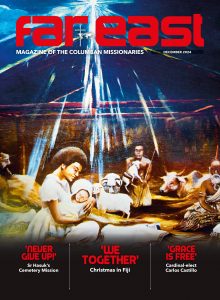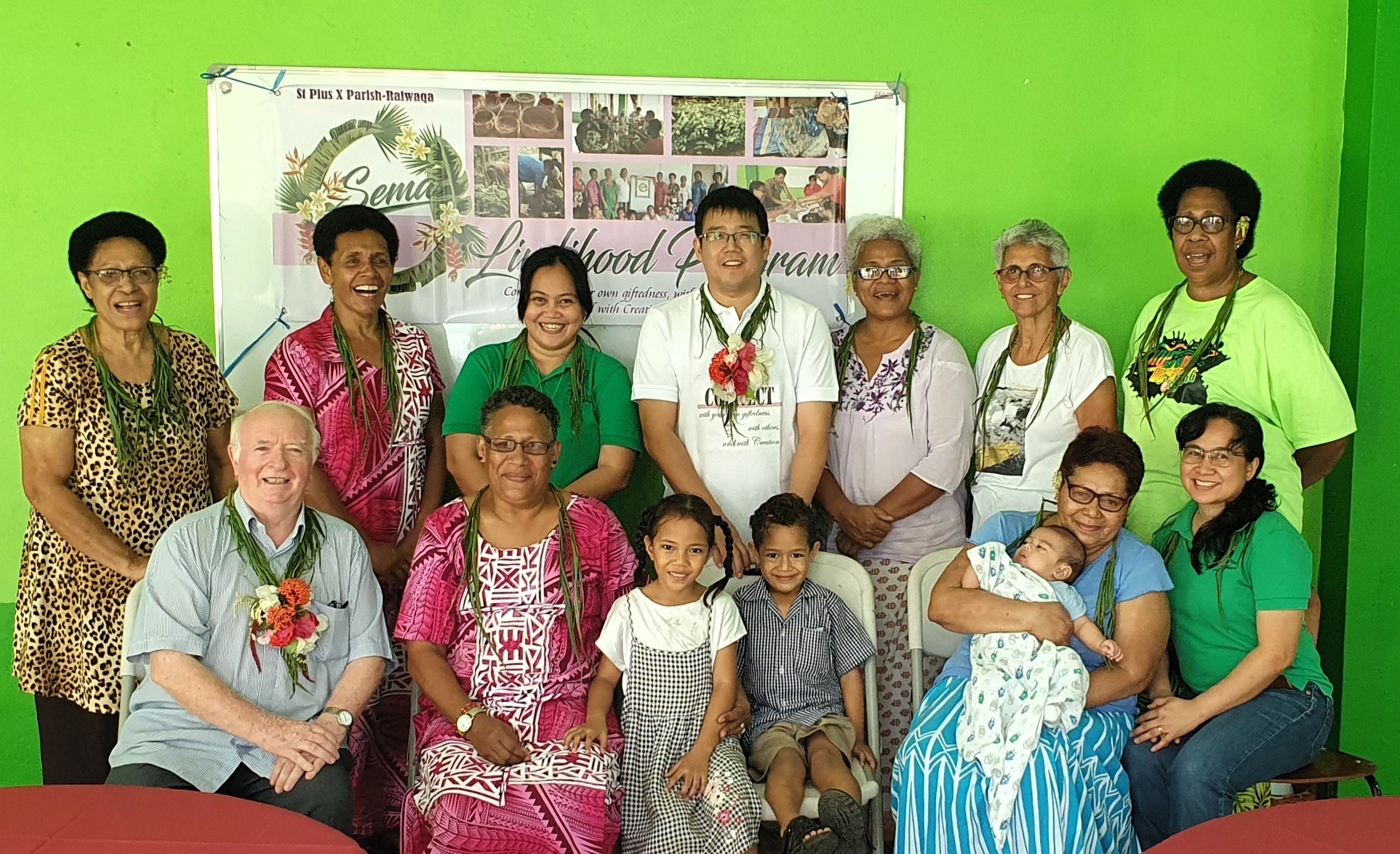Fr John McEvoy recalls his time as a missionary in Fiji and one particular outdoor Christmas project with a difference.
People still ask me, “do you miss Fiji, Father?” The answer is always, “of course I do.” The reason why I miss it is not always easy to explain. However coming up to Christmas, parish preparations for the Holy Season stand out in my mind. During my last few years as a missionary in Fiji I was pastor of St Pius X Parish in Raiwaqa, the most densely populated, smallest and economically poorest parish in the Archdiocese of Suva.
This parish grew out of a response by the Housing Authority and dynamic Columbans like Fr Dermot Hurley to the need in the 1960s for affordable housing for low wage earners and those coming into the city for work and the education of their children. Living conditions haven’t improved much over the years, but more and more people kept coming. There are now five large squatter settlements within the confines of the parish boundaries.
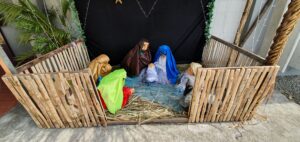
The outdoor Eco Christmas Crib in St Pius X Parish in Raiwaqa of which 95 percent was made from eco-friendly and recycled materials.
I loved my four years there before I returned home to Ireland. I was assisted by a team of well-trained lay leaders and a Columban lay missionary Marjorie Engcoy from the Philippines. Marjorie was a creative and skilled person. She recycled waste material into beautiful works of art. She trained the youth and the women of the parish to produce useful and usable products from things like plastic bottles and old newspapers. She started a small organisation for the women of the parish called ‘Sema’, which means ‘we together’.
After sending their children off to school, the women came along to the parish for companionship and to be taught new skills which would help them to be more self-sustainable.
The purpose of the Sema Project was to increase awareness of the need for ecological conversion in line with Laudato Si. The women have become efficient in backyard gardening, growing their own vegetables and potted plants for sale.
Christmas 2016 was special. Marjorie and the youth of the parish undertook to create an outdoor Eco Christmas Crib. This challenged the parish to hear the call for ecological conversion. The eco crib also aimed to evangelise and proclaim the deeper meaning of Christmas. Ninety-five percent of the crib was made from eco-friendly and recycled materials. Marjorie with the youth of St Pius X spent over a month creating the paper mâché statues which were the main focus of the crib.
The rest was built with scrap or used timber and bamboo strips; the statues were made of old newspapers; the star was made from recycled plastic bottle caps adorned with LED lights. Built outdoors, the crib invited passers-by to reflect on what humanity has done to the earth and to pray for an end to the harm so that the next generation may have a planet to call their home.
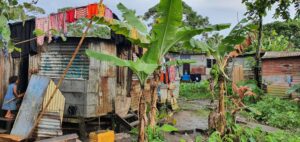
One of the five large squatter settlements within the confines of the parish boundaries.
The eco crib was blessed and lit on the day the parish held its parish carols night. A child was chosen to turn the lights on after the solemn blessing. The carol service is huge and is looked forward to by the entire parish. Each community in the parish, dressed in Christmas attire, performs a few carols and brings along foodstuff for the St Vincent de Paul Society to distribute to poor families living in the squatter settlements.
The parish choir can be heard practicing for weeks. The Christmas spirit is in the air long before Christmas night. The men of the parish spend a week cleaning the church from top to bottom – inside and outside. The catechism teachers are busy preparing the children for the Christmas play to be dramatised during the liturgy on Christmas Eve, replacing the Gospel and sometimes even the homily!
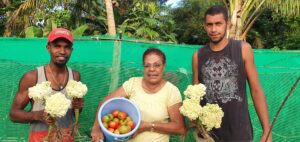
The Sema programme has helped women in the parish to grow their own vegetables in their backyards for sale.
The last few days before Christmas, I visit the sick and house-bound – many of them are not living in comfortable conditions. They receive the Sacrament of Reconciliation and Christ will be born to them anew in the Eucharist. I am often accompanied by members of the St Vincent de Paul with substantial food parcels so they can also have a merry and blessed Christmas with the rest of us parishioners.
Christmas is family time, a time when absent members are remembered and when many return to be at home. Raiwaqa is no exception. To prepare for the return of absent members, every small household erects a vakatunaloa – a makeshift lean-to covered with tarpaulin or galvanised sheeting. This enlarges their small homes to make room for returning sons, daughters and grandchildren.
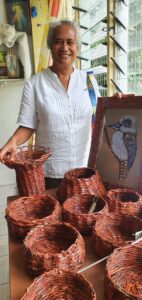
Members of Sema have also learned to weave and produce wonderful artwork.
Turkey and ham will not be on the menu for the Christmas dinner, but every house will have a lovo – chicken, fish, beef and root crops. These are wrapped in tinfoil and coconut and banana leaves and placed in an earth-oven for about three hours. When it is dug out, everything is perfectly cooked, with all the natural juices contained in each dish. Families sit around in their vakatunaloa enjoying the family feast of Christmas.
“Do you still miss it, Father?” Of course I do!
Fr John McEvoy was ordained in 1972. He served on mission in Fiji and is now based in Ireland.
If you would like to help our work in Fiji, please donate online at: www.columbans.ie/donate or send a cheque payable to ‘Columban Missionaries’ to the Far East Office, Dalgan Park, Navan, Co Meath C15 AY2Y or Tel: 00353 46 9021525.
